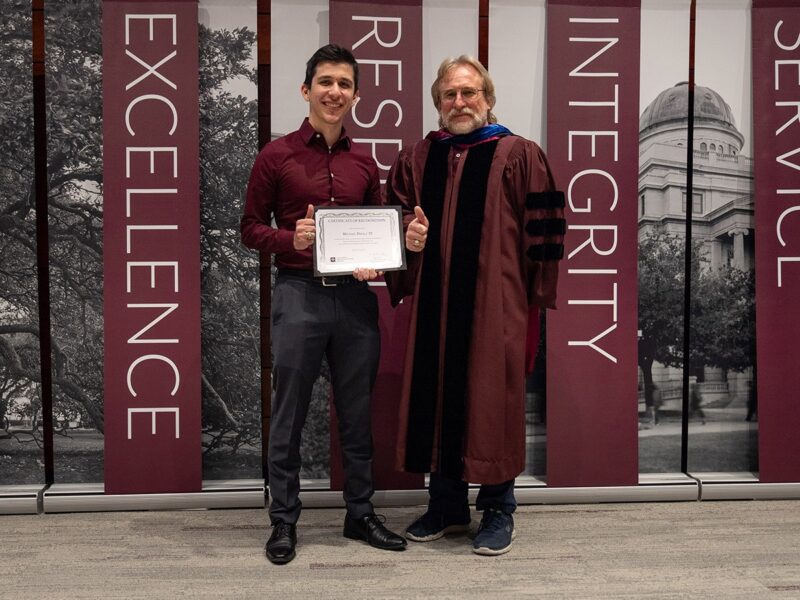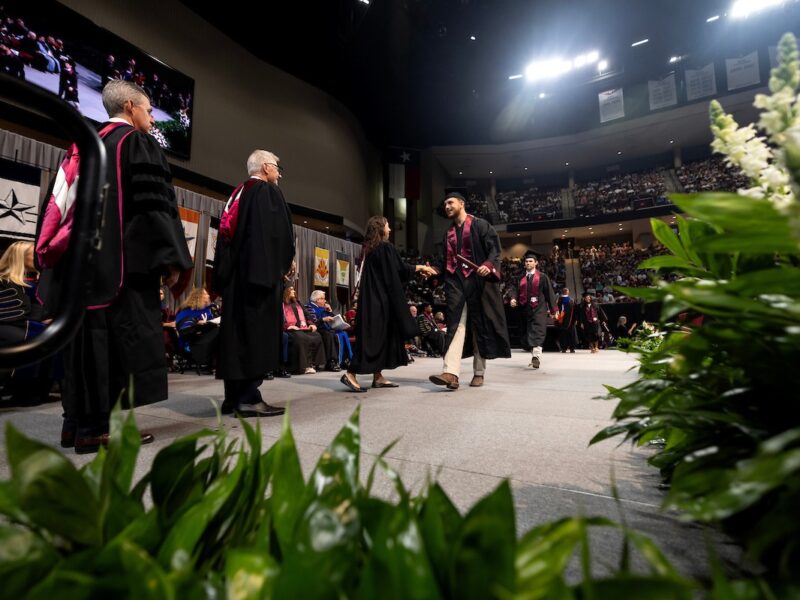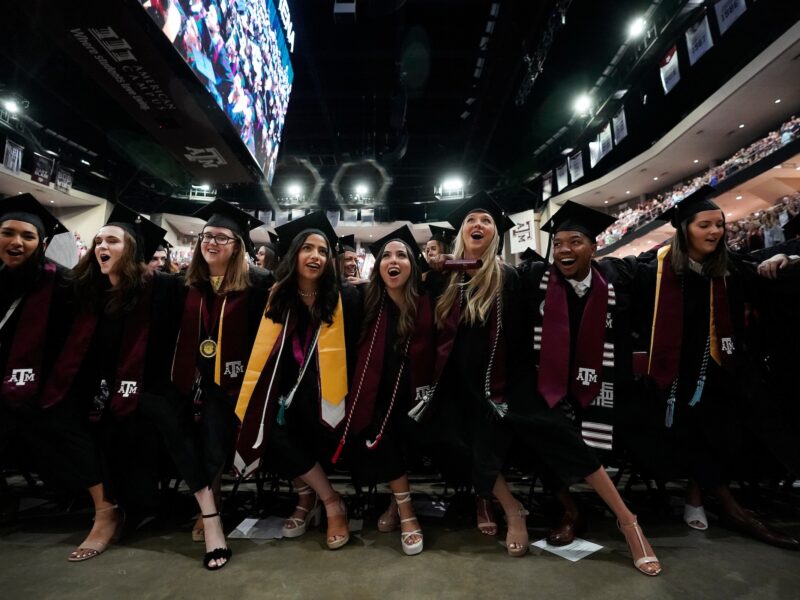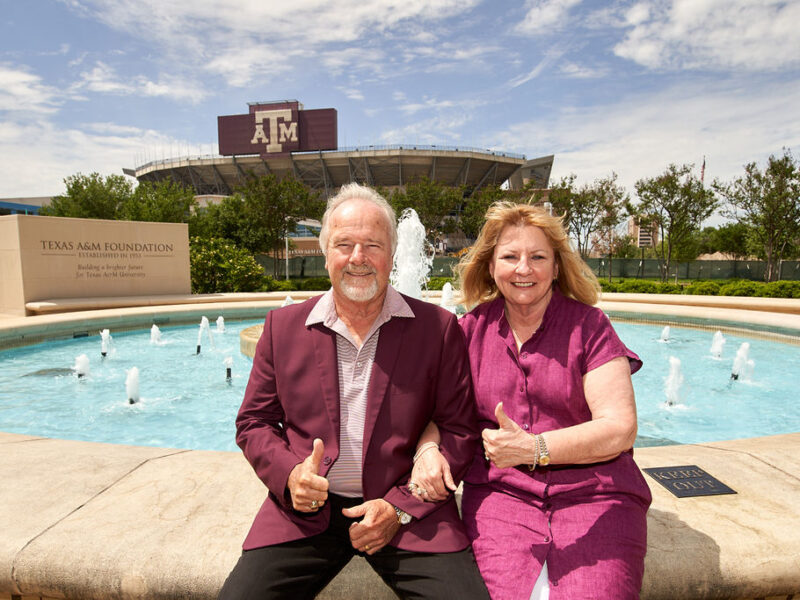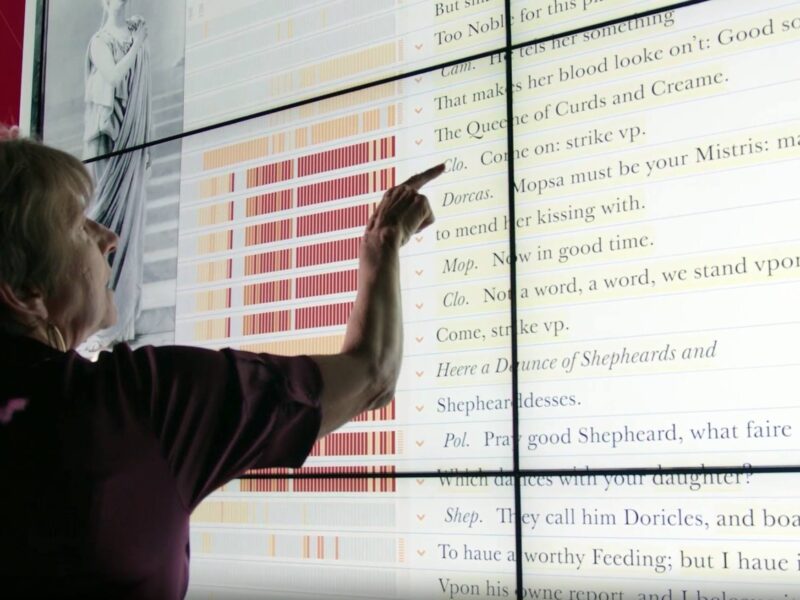Army Secretary Mark T. Esper Addresses Cadets, Families At Texas A&M Military Commissioning Ceremony
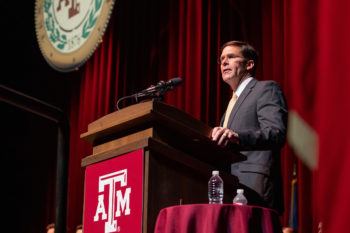
The top official over the U.S. Army told graduating Texas A&M cadets headed for active duty that the university’s outstanding history of building leaders means they “have big shoes to fill.”
Army Secretary Mark T. Esper added that he’s confident each of the 49 cadets receiving their commission into military service are equipped for the challenges ahead, thanks in large part to what they learned and experienced as a cadet in A&M’s Reserve Officer Training Corps (ROTC) program.
“Texas A&M has a proven track record of producing exceptional graduates,” said Esper, who was nominated 18 months ago to the senior civilian post by President Donald Trump and confirmed by the U.S. Senate.
He also credited the parents and family members, many of whom gathered Friday at Rudder Auditorium for the ceremony, for helping the tenacious young leaders.
Esper — who referenced the many military honors earned by Aggies, including eight Medal of Honor recipients — dispensed advice to the cadets becoming second lieutenants and praise to the 700 or so of their family members and friends.
Two other commissioning ceremonies unfolded Friday at Texas A&M, including for 47 cadets going into the Air Force and 30 into the Marines or Navy.
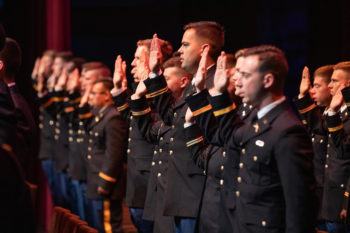
Rounding out his day-and-a-half stay in Aggieland, the 10-year Army veteran said he was impressed not just with the “high quality of cadets” and “great crop of officers” produced each year at A&M, but also the Corps of Cadets’ facilities and a major nearby campus associated with the university.
He toured the RELLIS Campus, which is run by the Texas A&M System and includes research and technology facilities, as well as testing sites and classrooms.
RELLIS and A&M researchers will have a role in helping the Army Futures Command center, which Esper announced last year as being the Army’s “most significant reorganization effort since 1973.” Based in Austin, the center also is working with The University of Texas System and its flagship, as well as Carnegie Mellon University in Pittsburgh.
Army Futures Command is expected to modernize the armed forces through collaborating with academia, innovators, entrepreneurs and industry leaders to solve complex problems and create technological advances.
“I’m investing a lot of time and effort into making sure we assess, educate, train, graduate and commission the best our nation has to offer,” Esper said, adding that one of the cadets on the stage next to him very well could — in the next 30 or so years — become a Chief of Staff of the Army, chairman of the Joint Chiefs of Staff or a combatant commander.
“We have to take great care with who we bring into the service, and make sure we train, educate and cultivate all along the way,” Esper said, adding that good leaders build trust and confidence from the start. “We’re getting great quality folks from Texas A&M.”
The ROTC is a program offered at more than 1,100 colleges and universities across the United States. Texas A&M has more ROTC members than any other university outside the U.S. military academies, and it is one of a handful of senior military colleges.
“I’ll leave here in a few hours with a great feeling, and good experiences,” said Esper, commenting to the media following the ceremony.
Media contact: Kelly Brown, Division of Marketing & Communications, kelly.brown@tamu.edu
